The reform of the Bar self-government must be based on the current model - Chairs of Regional Bar Councils
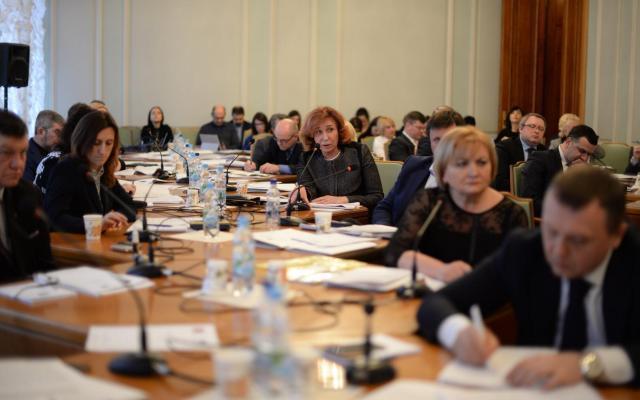
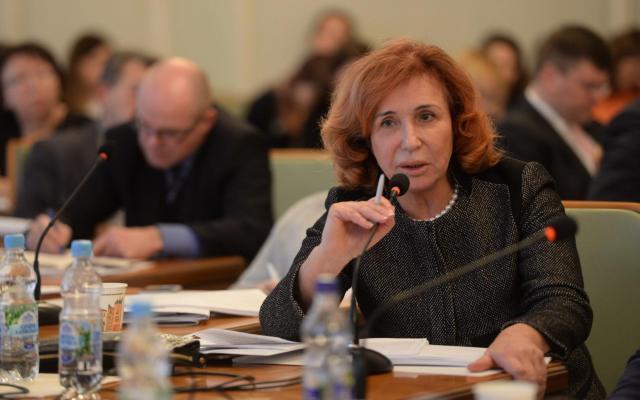
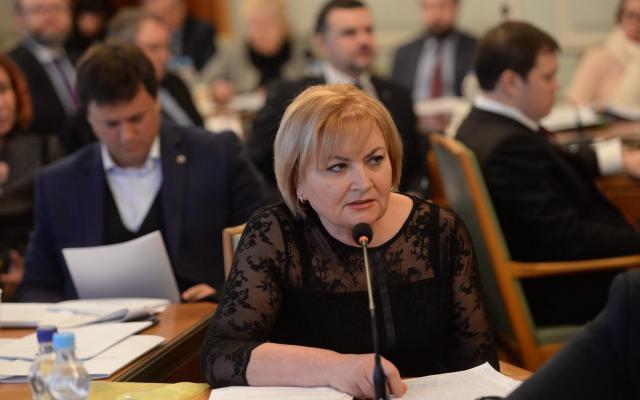
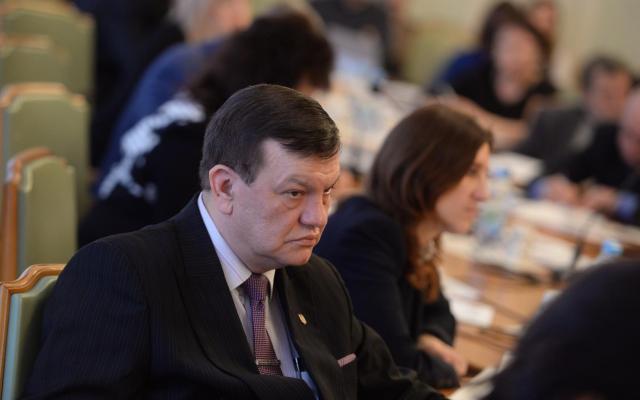
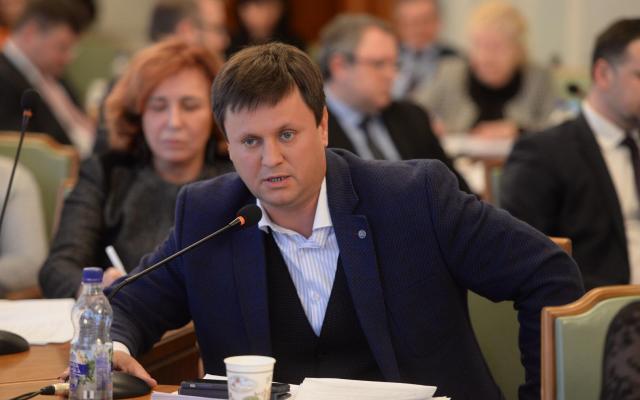
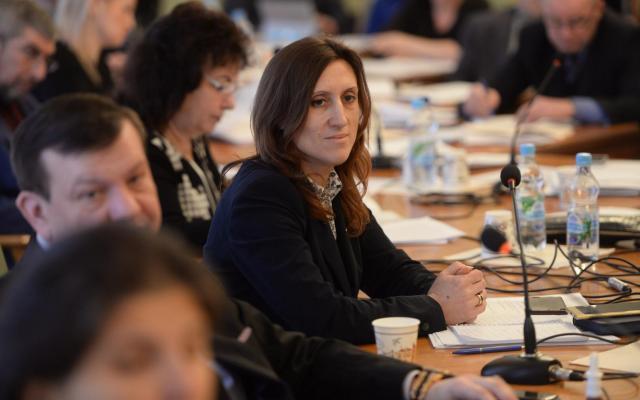
The reform of the Bar self-government should take place on the basis of the model, created by the current law "On the Bar and Practice of Law."
It is the position of UNBA President Lidiya Izovitova, the Chair of HQDCB Oleksandr Drozdov, the Chairs of Regional Bar Councils, expressed during the roundtable discussion "Lawyer's Self-Government: the Ways of Improvement." The event is a joint initiative of the Council for Judicial Reform and the Council of Europe Project " Support to the implementation of the judicial reform in Ukraine." The main topic of the roundtable was the draft law on amendments to the law "On the Bar and Practice of Law," developed by the CJR WorkGroup.
Lidia Izovitova stressed that the current self-government system was built following recommendations of the Venice Commission. The system of representative bodies and qualification-disciplinary chambers assessed in this document as conforming to the standards of the Council of Europe. That is an argument in favor of taking the current model as the basis for further reform.
The WorkGroup's draft law gives grounds for concern, especially - creation of Regional Chambers with mandatory membership for advocates, convocation of conferences in the format of general meetings, the loss of constituency of regional Bar self-government.
UNBA representatives emphasized that the draft law disrupts the balance of powers between the national and regional authorities as well as rattling distribution of functions between different authorities of the same level.
According to Olexiy Fazekosh, the Chair of Bar Council of Zakarpattya Region, the proposed procedure for convocation of conferences will result from the creation of several councils, several registers of advocates, and as a result - constant flow of lawsuits and hence - constant electoral process, which will consume regional advocates' communities for years to come. The lack of stable, legitimate self-government in the regions will result in the collapse of Congress of Advocates of Ukraine, which will mean a collapse of the self-governing system.
Chairman of the Bar Council of Ternopil region Taras Budz expressed objections to recognizing a conference as legitimate where 5% of the lawyers of the region participated. Such a provision opens up the possibility to convocate several conferences in a single region at the same time and, pursuant to their decisions, create several councils of advocates working in parallel.
Concerning the concept of the draft law as a whole, Oleksiy Fazekosh expressed in favor of redistribution of powers between the center and the regions properly accounting for the fact that Ukraine is a unitary country.
Galina Rudenko, the Chair of the Bar Council of the Volyn region, once again reminded that the current law was adopted in full accordance with the Joint Opinion of the Venice Commission and DG-1 from 2011. The system based on it has proved to be effective and able to protect the rights of lawyers. Instead, the draft law will take away the power protect the rights of lawyers from Regional Bar Councils. According to Chair of the Bar Council of Dnipropetrovsk Region Tetyana Leshchenko, the creation of 27 separate Chambers is a failed idea, which resembles the Soviet model very much. At the same time, at the regional level, power will be essentially concentrated in the hands of the Chair of the Chamber. This opinion was supported by Oleksandr Melnikov, Chairman of Bar Council of Luhansk Region, who said that without strong protection from National Bar, individual lawyers would end up in the same conditions as in Soviet times.
Ganna Kolesnik, Chair of UNBA Human Rights Protection Committee, opposed the introduction of regional Bar membership, as this contradicts the right to practice throughout the country.
Representatives of the regional Bar self-government also expressed their opposition to the abolition of the two-level administration of URAU. Reliability of the data on advocates from the whole country cannot be ensured if each region has the opportunity to enter data independently. Also, such a procedure will create a financial burden for regional bar councils. The Chair of the Bar Council of Kirovograd Region expressed the opinion that the legal and technical peculiarities of URAU administration should be coordinated, and their regulation should relate to the powers of BCU, as stipulated by the current law.
The Chair of the Bar Council of Vinnytsia region Olga Tereshchenko warned that unreliable data in URAU would have consequences for the court procedure, as there will be problems with the confirmation of authority and the legal status of advocates.
During the roundtable participants also discussed the grounds for disciplinary liability of advocates and financial aspect of advocate's self-government.
HQDCB Chair Oleksandr Drozdov emphasized that the current system of qualification-disciplinary commissions complies with European standards, as well as their disciplinary practice. Therefore, such a reform, as dividing it into two sub-systems, is inappropriate and, as stated in the Council of Europe Expert Report, does not exist in any European country. Among the changes that need to be introduced to the law in this part, as named by him, are the extension of the grounds for disciplinary liability, imposition of fines, as well as the right of HQDCB's exclusive right for reviewing disciplinary cases.
UNBA and representatives of regional self-government will submit their proposals for amendments to the law at the next meeting of the Council for Judicial Reform scheduled for February 12. The joint position on the CJR WorkGroup's draft law reflected in the said Resolution.
Photo by Yevhen Korol, "Yuridicheskaya Praktika"
Popular news
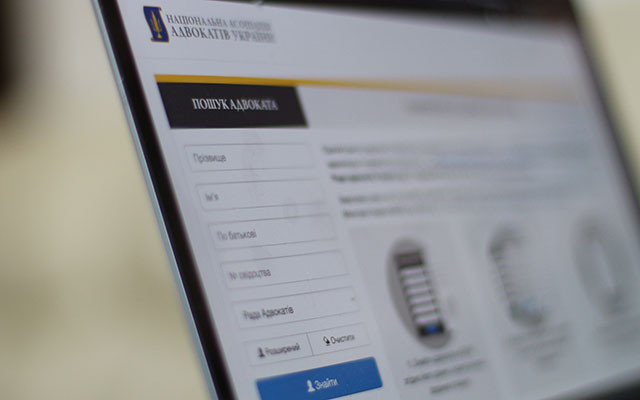
URAU
Access to advocate contacts in URAU has been restored
The Bar Council of Ukraine has opened up public access to data from the Unified Register of Advocates of Ukraine, which was closed at the start of the full-scale invasion in 2022. The decision was made at a meeting on December 12–13.
Self-government
Members of the QDCB are not required to submit declarations - BCU
Bar Council of Ukraine examined the legal status of members of bar self-government bodies and found that they are not required to submit declarations of persons authorized to perform functions of state or local self-government.
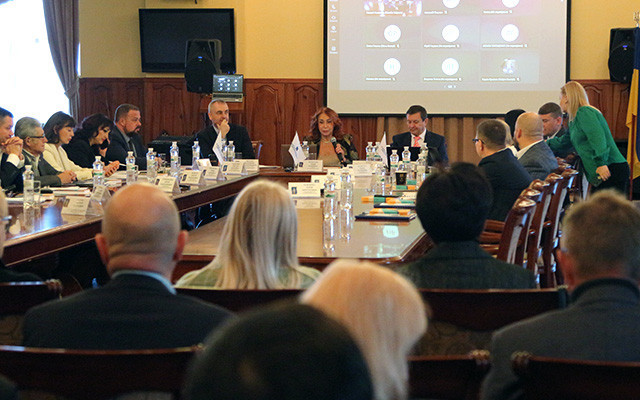
Self-government
BCU has identified 12 areas for implementing the Roadmap for advocacy
During its meeting on December 12, the Bar Council of Ukraine considered the Roadmap on the Rule of Law, approved by Order of the Cabinet of Ministers of Ukraine No. 475-r dated May 14, 2025. The document provides for the development and adoption of a draft law on improving the legal regulation of advocacy by the fourth quarter of 2026.
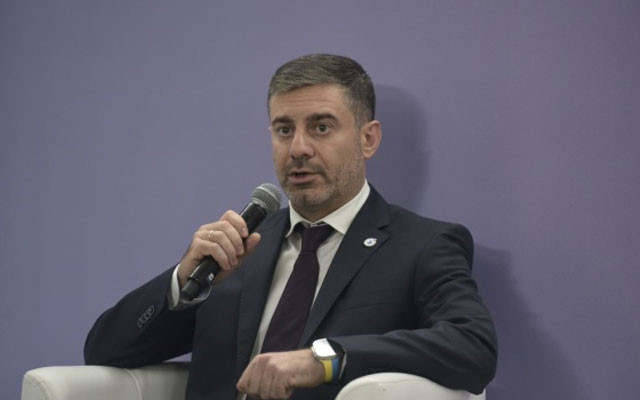
Guarantees of the practice of law
The Ombudsman acknowledged the problem of violation of the human right to legal aid in the TCC
The Verkhovna Rada Commissioner for human rights Dmytro Lubinets confirmed the existence of a problem with ensuring the constitutional right to professional legal assistance in territorial recruitment and social support centers.

Guarantees of the practice of law
The agreement on the provision of legal assistance is not public – BCU
Bar Council of Ukraine in its decision No. 111 dated October 18, 2025, responded to questions regarding the possibility of concluding legal assistance agreements by accepting a public offer, using an electronic form of the agreement, and posting information about legal assistance on websites.
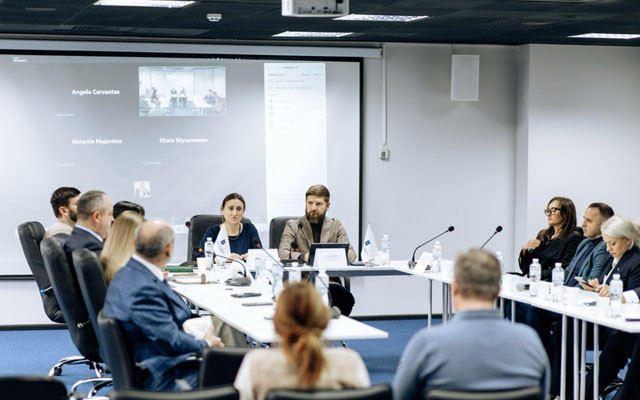
Discussion
Why preventive measures have turned into preventive punishment in Ukraine: round table discussion
The European approach, enshrined in the CPC, provides for detention as an exceptional preventive measure: courts must prove the impossibility of milder alternatives and carefully assess the risks. In practice, however, it is increasingly being applied almost automatically, eroding standards of freedom.
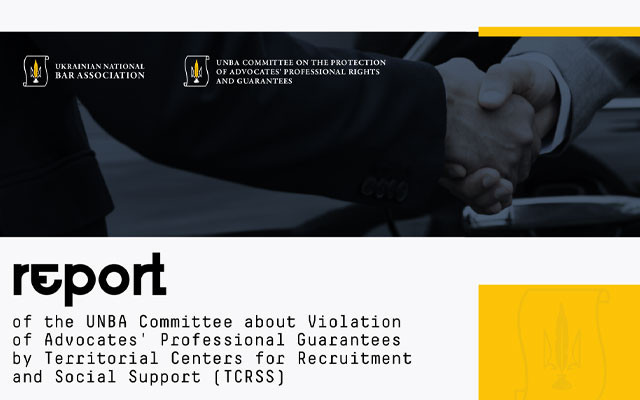
Guarantees of the practice of law
The UNBA presented a report on violations of advocates' rights in the TCC
The Committee for the protection of advocate's rights and guarantees of legal practice of the UNBA has prepared a consolidated report on violations of advocate's professional rights and guarantees of legal practice by territorial recruitment and social support centers for the period from 2022 to the first half of 2025.
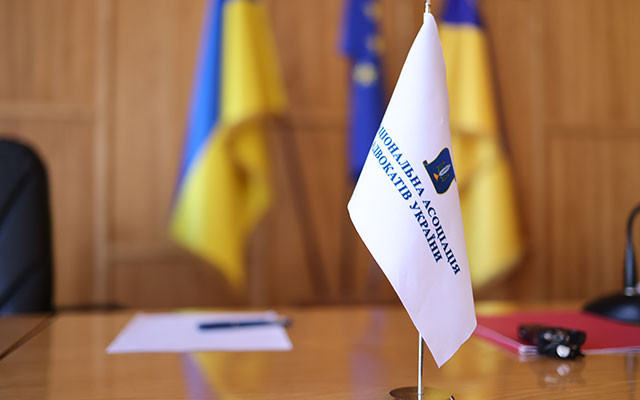
Self-government
Statement by the UNBA Committee regarding manipulative journalistic material
Statement by the UNBA Committee on information policy and interaction with the media regarding manipulative journalistic material aimed at discrediting the advocacy institution.
Publications

Censor.net Protecting advocates – protecting justice: addressing concerns about the new law

Ihor Kolesnykov A BRIEF SUMMARY REGARDING THE APPLICATION OF THE ORDER ON EXTENDED CONFISCATION IN LATVIA REGARDING FINANCIAL ASSETS OF…

Valentyn Gvozdiy WORKING IN A WAR ZONE

Lydia Izovitova Formula of perfection

Sergiy Vylkov Our judicial system is so built that courts do not trust advocates

Iryna Vasylyk Advocacy in the proclamation of Independence of Ukraine

Oleksandr DULSKY When we cross the border of the Supreme Anti-Corruption Court, we get into another department of the National Anti-Corruption…

Vadym Krasnyk The UNBA will work, and all obstacles and restrictions are only temporary inconveniences
